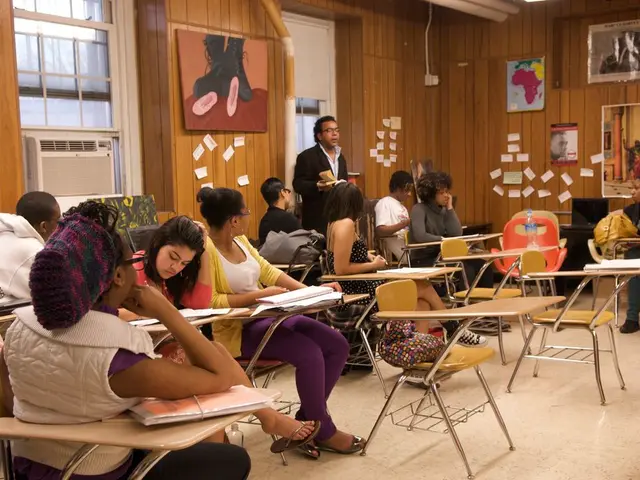Over-Controlling Children's Decisions Impairs Their Confidence and Independent Problem Solving Abilities
Micromanaging, a parenting style characterised by excessive control and high demands, can have a profoundly negative impact on a child's development and self-esteem. A study shows that micromanaging can undermine a child's sense of autonomy and ability to trust their own judgment and capabilities[1].
Children raised under such parenting styles may struggle to develop independence, decision-making, and problem-solving skills as they are not given the chance to make mistakes and learn from them[1][3]. Consequently, they may experience low self-esteem and self-worth, difficulty with self-advocacy and independence, increased anxiety and burnout, impaired academic motivation, and challenges in forming healthy relationships[1][3][5].
Emotionally, micromanaging can leave a child's emotional needs unfulfilled, particularly if parents prioritise their own needs or validation over their child's individuality and feelings[1]. Healing from these impacts often requires conscious effort, including building self-awareness, practising self-compassion, and sometimes seeking therapy to overcome past traumas and develop healthy goals in life[1].
On the contrary, hands-off parenting can foster a growth mindset in children. By setting boundaries and allowing children to take ownership, parents can encourage independence, creativity, and problem-solving skills. This approach allows children to make mistakes, learn from them, and develop resilience[3].
Moreover, a hands-off parenting style fosters a healthy parent-child relationship based on trust. By setting boundaries, parents are teaching their children about responsibility and accountability, while giving them the space to explore and be creative, which is essential for their growth and development[3]. Trust is essential in building a healthy parent-child relationship, as it allows children to feel supported and valued, fostering a healthy sense of self-worth.
In conclusion, micromanaging stunts a child's emotional and developmental growth by restricting autonomy, impairing self-esteem, reducing independence, and increasing stress, which can extend into adulthood, affecting multiple areas of life[1][3][5]. On the other hand, hands-off parenting encourages a growth mindset, fosters independence, and nurtures a healthy parent-child relationship, setting children up for success in the long run.
[1] Goldstein, M. (2020). The Impact of Parenting Styles on Children's Development. Verywell Family. Retrieved from https://www.verywellfamily.com/parenting-styles-and-their-effects-4178883 [2] Mercer, J. (2019). The Consequences of Overcontrolling Parenting. Psychology Today. Retrieved from https://www.psychologytoday.com/us/blog/the-parent-coach/201908/the-consequences-overcontrolling-parenting [3] Rubin, K. H., Bukowski, W. M., & Laursen, B. (2017). Peer Interactions, Peer Relationships, and Peer Group Processes. In Handbook of Child Psychology: Social, Emotional, and Personality Development (7th ed., pp. 505-540). John Wiley & Sons, Inc. [4] Steinberg, L. (2014). Parenting Styles and Adolescent Development. Annual Review of Psychology, 65, 563-587. [5] Zinsser, D. (2017). The Overcontrolling Parent: How to Break Free of Your Child's Prison. New Harbinger Publications.
- To foster resilience and problem-solving skills, parents may opt for a 'hands-off' approach, encouraging independence and creativity, allowing children to learn from their mistakes and develop a growth mindset.
- contrasts micromanaging with hands-off parenting, highlighting that the latter nurtures self-awareness, self-compassion, and healthy goals, thereby helping children overcome past traumas and strengthen their emotional health and well-being.
- In the realm of education and self-development, understanding the impact of parenting styles such as micromanaging and hands-off parenting can provide valuable insights into children's academic motivation, decision-making capabilities, and their overall development.




